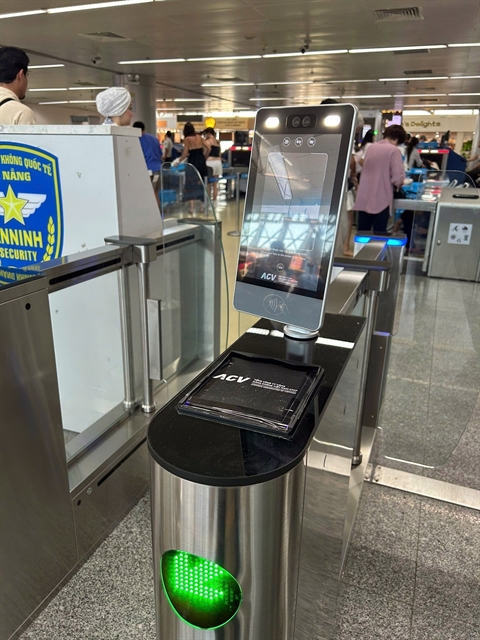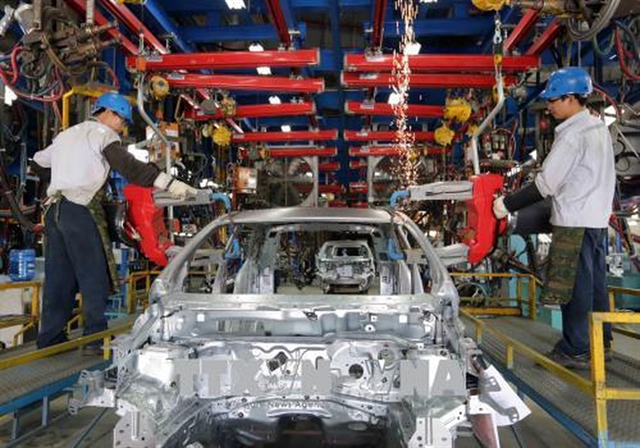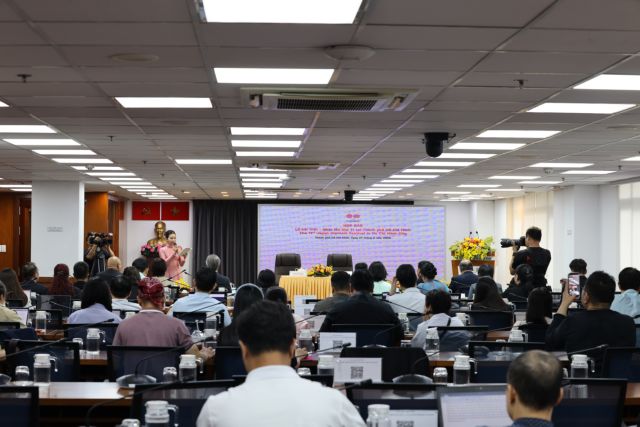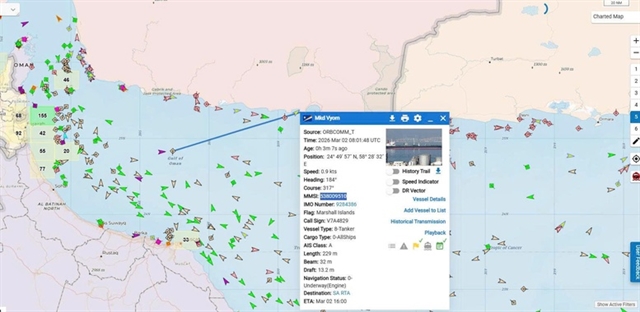 Economy
Economy


|
| Cars produced at a plant of Ford Việt Nam in Hải Dương Province. The domestic car industry was benefiting from the Government's support policies. — VNA/VNS Photo Trần Việt |
HÀ NỘI — The domestic automobile industry was forecast to thrive, given the Government’s supports in tax policies for imported automobile components coupled with the increasing income of citizens, according to a report by the Việt Dragon Securities Corporation (VDSC).
VDSC pointed out that the domestic automobile industry was benefiting from three policies.
The first was a 50 per cent reduction in registration fees for domestically-produced or assembled vehicles in effect from June 28 to the end of this year.
The second policy was a decree allowing automakers who met the requirements of outputs to enjoy zero import tariffs for automobile components which could not have been produced domestically, cutting production costs by 2-2.5 per cent.
The last policy was the extension of the deadline for the payment of special consumption tax on domestically produced and assembled cars till the end of this year.
These policies would help lower production and service costs, making cars more affordable to more people, VDSC said.
In addition, the Vietnamese economy was on a post-pandemic recovery path when the country successfully contained the virus and incomes of citizens were increasing which would improve their purchasing power.
The last quarter of this year and next year would see significant increases in automobile sales, VDSC said.
However, the automobile market would face a number of challenges.
January-August did not see an excess of supply but automobile prices dropped to attract buyers amid low demand due to the COVID-19 pandemic.
In the last quarter of this year, automobile supply was estimated to total 127,000 units while sales were expected at 122,000, meaning an inventory volume at about 4,000 units. Coupled with a stockpile of 85,000 units from 2019, the pressure from automobile inventory remained high.
The incentive tax policy on imported components would cut production costs of cars produced or assembled domestically, which gave room for reducing selling prices, VDSC said, adding that the economy getting back on its feet after the pandemic would also help push sales.
According to the report of the Việt Nam Automobile Manufacturers’ Association (VAMA), the total industry sale volume in September was 27,252 units, of which, 20,630 were passenger cars, 6,396 commercial vehicles and 226 were special-purpose vehicles. This volume represented a rise of 32 per cent against the previous month but down 2 per cent against September 2019.
VAMA’s statistics also showed that sales volume in September of completely- knocked-down was down 17 per cent while sales of completely built-up was down 33 per cent against last year. — VNS




